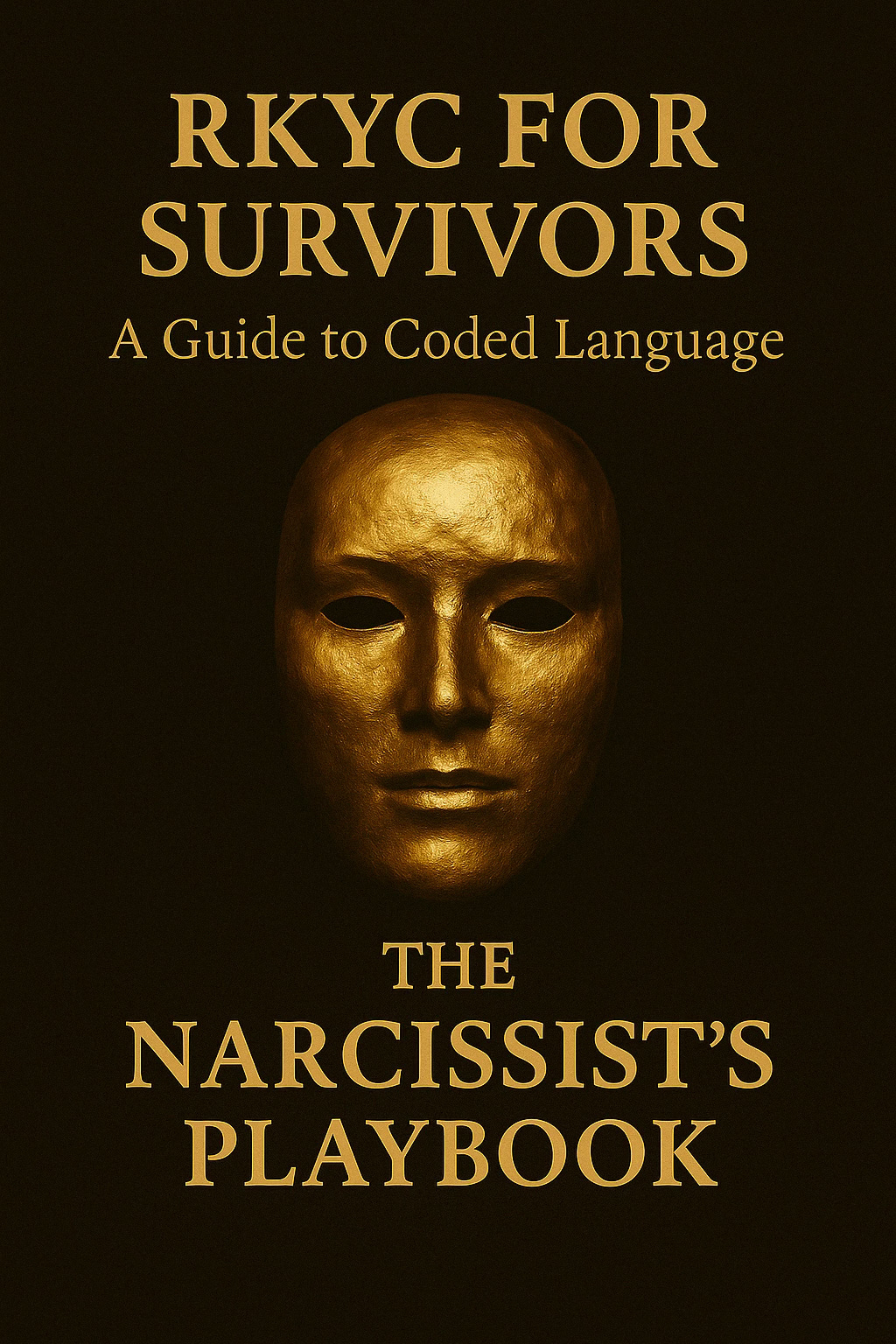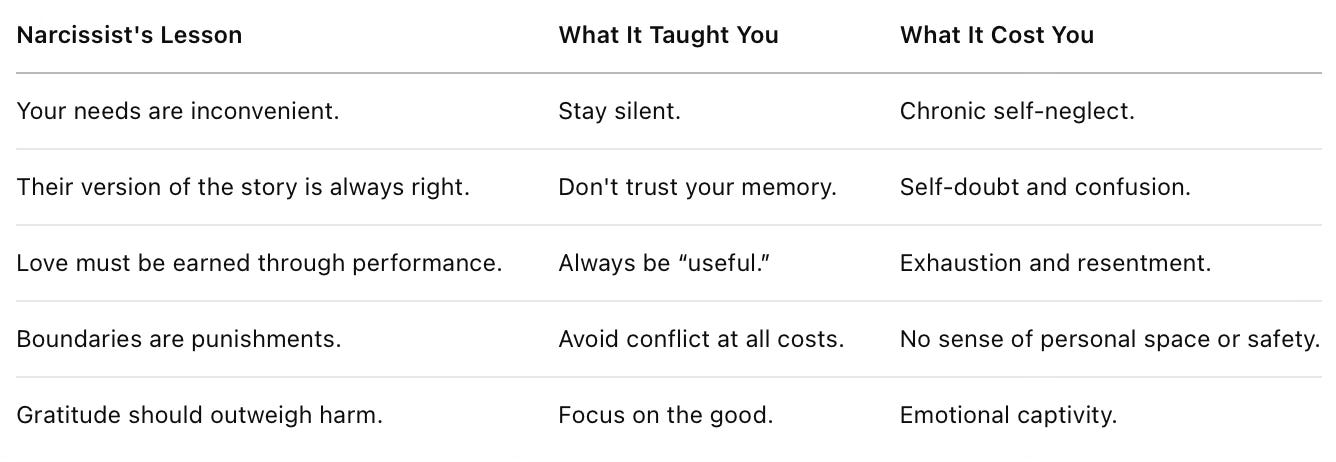Chapter 7: RKYC for Survivors: Really Know Yourself
From the THX Series Hub: The Narcissist’s Playbook & The Life After
Author’s Note
This post invites you to turn inward—toward clarity, not blame.
If you’ve survived narcissistic abuse, it’s normal to feel unsure of what’s real, or who you are outside that dynamic.
But the truth is still there. And so are you.
When you’ve been trained to serve someone else’s story, knowing yourself becomes an act of revolution.
RKYC—Really Know Your Customer—is a tool I use in business to help organizations listen, learn, and meet real human needs.
But for survivors?
The first customer is you.
You’ve spent so long adapting, deflecting, protecting, explaining…
You may not even know what your actual preferences are—because they were constantly punished or overridden.
RKYC for Survivors is about remembering who you were before the mask—and rebuilding from the truth, not the trauma.
What Narcissists Teach You (But You Have to Unlearn)
RKYC Questions for Survivors
Start here—not to fix yourself, but to find yourself.
When did I feel most myself before this relationship?
What needs did I hide to stay “safe” or “pleasant”?
What truths did I soften so I wouldn’t be punished?
When did I feel proud of myself—and who dismissed that pride?
What beliefs did I adopt just to survive?
This isn’t about staying in the pain.
It’s about locating your original self—the one who never needed to prove their worth to be worthy.
The Risk (and the Reward)
Narcissists don’t want you to know yourself.
Because once you do:
You stop internalizing their projection.
You stop participating in their fantasy.
You stop needing their validation to feel real.
And the moment you stop needing them?
They lose control.
That’s the risk—for them.
But it’s the reward—for you.
Final Words
RKYC for Survivors isn’t a branding tool.
It’s a healing compass.
It asks:
What is actually true for me?
And how do I build a life that honors it?
You are not here to play a role in someone else’s self-image.
You are here to reclaim your name, your voice, your needs, your joy.
And the more you know yourself,
the less likely you’ll ever be fooled by counterfeit love again.

Quick Links
Framework-based essays that decode the patterns, tactics, and predictable emotional logic of narcissistic behavior.
🔹 Chapter 1: The Illusion of Utility
Narcissists appear helpful, generous, and supportive—but what they offer isn’t true utility. This post unpacks how they simulate usefulness to create dependence, and how recognizing what was missing can be the first step toward freedom.
Using the lens of human flourishing, this piece explores how narcissists mimic love, meaning, and growth—not to connect, but to control. When every good thing gets twisted, how do you tell what’s real?
🔹 Chapter 3: Twisting the Admiration Equation
Admiration should feel earned, mutual, and expansive. But narcissists distort it into obligation. This post reveals how they manipulate skill, goodness, awe, and gratitude to extract loyalty—and punish doubt.
🔹 Chapter 4: When Admiration Becomes Worship
This entry shows what happens when admiration is no longer enough. Narcissists demand reverence, punish independence, and expect silence in the face of harm. Love is replaced by performance—and dissent becomes betrayal.
🔹 Chapter 5: Prospect Theory and Narcissism
Why do narcissists explode over small things? This post uses behavioral economics to explain how narcissists experience boundaries, autonomy, and truth as losses—and why they’ll do anything to avoid them.
🔹 Chapter 6: The Micro-Moment Manipulation
Sometimes what keeps us hooked isn’t the big promises—it’s the little moments. This piece explores how narcissists use micro-moments of affection and relief to reset your hope and obscure the harm.
🔹 Chapter 7: RKYC for Survivors
Originally designed as a business tool, “Really Know Your Customer” becomes a healing practice here. This post helps survivors rediscover their truth, needs, and voice—after years of emotional distortion.
A quiet offering for those who stayed too long, left too late, or are still trying to name what happened. This piece honors survivors, holds space for grief, and speaks to the person you used to be.
📖 Author’s Note & Series Closure
This final entry reflects on why the series was written, how the THX frameworks helped decode personal experience, and what it means to move forward—with clarity, dignity, and your story intact.



